Hurricane Damage Claims
Hurricanes are among the most devastating and unpredictable natural disasters facing policyholders. Winds, rain, storm surge, and flooding can all wreak havoc on your home or business. Hurricane damage insurance claims can be complicated because they typically require multiple policies (i.e. standard homeowners and flood insurance) with one insurance company shifting responsibility to the other.
Merlin Law Group understands this frustration and is here to help you with your hurricane damage claim that has been wrongfully delayed, denied, or underpaid. As The Policyholder’s Advocate™, we are committed to helping you obtain justice so that you can get back on the path toward recovery.
Get a free case review
Free Case ReviewHurricane Damage FAQs
Our Hurricane Claim Attorneys Are Here To Answer Your Questions
- File a claim with your insurance company.
- Take photographs of any damage to the interior and exterior of your home.
- Compare new photos with those taken before the storm.
- Have a public adjuster, contractor, or damage expert assess the property.
- Understand your insurance policy and what is and isn’t covered.
- Contact an experienced hurricane damage attorney if your insurer is wrongfully delaying, denying, or underpaying your claim.
This depends on whether your insurance policy covers the full scope of potential hurricane damage. For example, many policies exclude flood damage, which is ironic given that flooding can often lead to the most significant type of damage suffered by a home during a hurricane. Most standard homeowners policies separate water damage from flooding, so you will need to secure flood coverage through either the National Flood Insurance Program, FEMA, or another authorized private carrier.
Oftentimes no. Policies will include wind damage and in some cases, water damage, but damage from flooding is another element that is typically excluded from most policies. Homeowners will need to obtain flood damage coverage through an authorized private carrier or public entities like the National Flood Insurance Program or FEMA.
An insurance coverage limit determines the maximum amount of money an insurance company will pay for a covered claim. There may also be time limits within which you have to file a claim for incurred damage(s). We strongly recommend you go through your policy thoroughly to figure out what limits are present.
Anti-concurrent clauses prohibit recovery when a covered peril and non-covered peril combine to cause a loss. For example, if your home sustains wind (covered) and flooding (non-covered) damage due to a hurricane, your insurer will deny your claim regardless of the existing wind coverage. Be sure to read through your policy to determine whether there are any of these clauses.
In order to avoid underinsurance, we recommend you adopt Replacement Cost Coverage [RCC] over Actual Cash Value [ACV]. RCC equates to the cost to replace the damaged property with materials of similar kind and quality without any sort of deductions for depreciation. ACV payouts can be broken down into three ways – (1) the cost to repair or replace any damaged property, minus depreciation; (2) the “fair market value” of the damage property; (3) or by using what is known as the “broad evidence rule,” which is when insurers consider all relative evidence of the value of the damaged property. We recommend RCC because you stand to receive fairer compensation when filing a claim.
We have experienced insurance claim attorneys practicing nationwide. View our directory of attorneys here.
FAQ: Your Florida Home Deductible
Property owners should be examining their insurance policies to review both their policy limits and hurricane deductible before disaster strikes. Read more on our Property Insurance Coverage blog.
Hurricane Checklist
We have developed a helpful Hurricane Checklist detailing proactive steps you can take before, during, and after a hurricane to ensure your property is protected. Even if not currently facing a hurricane threat or dealing with a hurricane damage insurance claim, it is always good to be prepared.
Download Your Free Hurricane Checklist
Condominium Hurricane Checklist
Condominium and other multi-family properties are especially vulnerable to hurricane damage based on the proximity to the shoreline. We represent both individual homeowners and large condominium properties and associations. Our Condominium Hurricane Checklist outlines steps for Community Association Managers.
Submit A Free Case Review
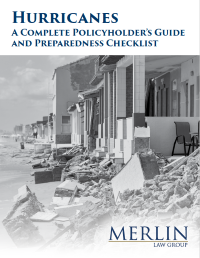
NEW! Hurricanes: A Complete Policyholder’s Guide and Preparedness Checklist
Hurricanes: A Complete Policyholder's Guide and Preparedness Checklist details proactive steps you can take before, during, and after a hurricane to ensure your property is protected. Even if not currently facing a hurricane threat or dealing with a hurricane damage insurance claim, it is always good to be prepared.
Download eBook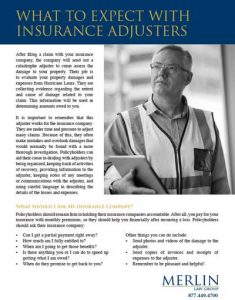
What To Expect With Insurance Adjusters
It is important to remember that the adjuster works for the insurance company. They are under time and pressure to adjust many claims. Because of this, they often make mistakes and overlook damages that would normally be found with a more thorough investigation.
Download eBook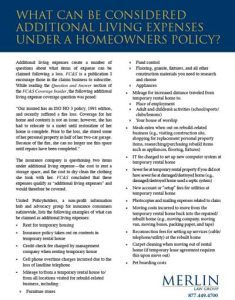
What Can Be Considered Additional Living Expenses Under a Homeowners Insurance Policy?
Additional living expenses create a number of questions about what items of expanse can be claimed following a loss. FC&S is a publication I encourage those in the claims business to subscribe.
Download eBook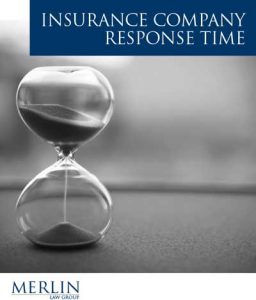
Insurance Company Response Time
When your home or business suffers damage due to a natural disaster, your life can change quickly. Insurance companies are there to help you through this peril, but the wait between the disaster and getting back to normal can be agonizing.
Download eBook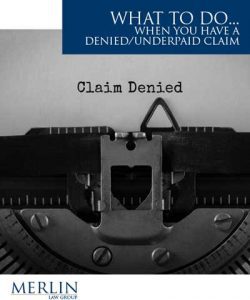
What to Do When You Have a Denied/Underpaid Claim
Having your property insurance claim denied is not the end of the road. Unfortunately, it is the last thing you want to hear after a disaster leaves your home or business damaged, but it is merely another step in the process towards recovery.
Download eBook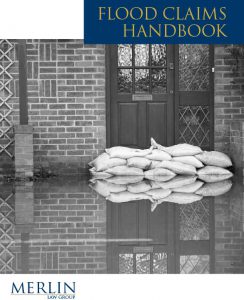
Flood Claims Handbook
Flood insurance is a necessary component of complete hurricane protection. Our Flood Claims Handbook discusses this type of insurance and has helpful information.
Download eBook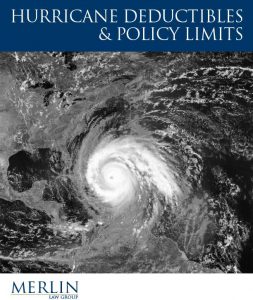
More Information on Hurricane Deductible and Policy Limits
Understanding what is and isn’t covered in your insurance policy is vital to securing adequate recovery after a hurricane loss. We have developed an eBook discussing both policy limits and hurricane deductibles.
Download eBook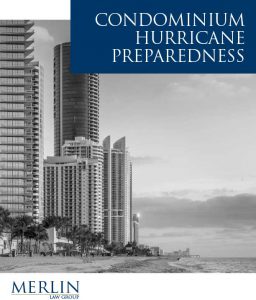
Condominium Hurricane Preparedness
Condominium and other multi-family properties are especially vulnerable to hurricane damage based on the proximity to the shoreline. We represent both individual homeowners and large condominium properties and associations. Our Condominium Hurricane Checklist outlines steps for Community Association Managers.
Download eBook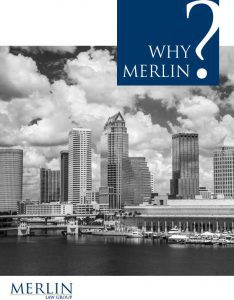
Why Merlin?
Since 1985, Merlin Law Group has aided policyholders achieve recovery with their property insurance claims. We have created an eBook detailing what Merlin can bring to the table in terms of legal representation. Don’t let insurance companies lead you to a second disaster — allow Merlin Law Group to help!
Download eBook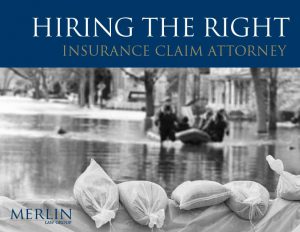
Hiring The Right Insurance Attorney
It is important you find an attorney that will be aggressive in obtaining justice for you. Merlin Law Group’s attorneys have the experience and skillset required to help policyholders receive their entitled coverage benefits. Check out our eBook on what to look for in a property insurance attorney to see if we would be a good fit for you.
Download eBook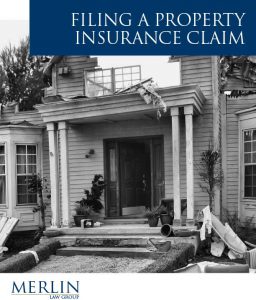
Filing A Property Insurance Claim
Filing a property insurance claim can be confusing if you have never had to do it before. We created this helpful asset outlining the process.
Download eBook